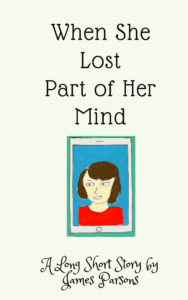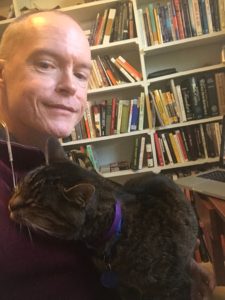
When I hear a certain word used frequently, I perk up. I don’t want to miss out on a hot, go-to word that’s fun to say and might make it easier for me to connect with others. But, at the same time I want to steer people away from saying something inappropriately when pop culture has taken a wrong turn.
That said, I fear that the word “gross” has become terribly overused, and often to describe non-gross conditions. I’d finally had enough when recently on a plane, another passenger put her carryon in the space above me. In order to make it fit, she had to rearrange some other luggage and in doing so some loose dirt or sand fell off that bag, mostly onto my lap. Some of it must have gotten on her, though, because she loudly exclaimed “Gross!” But, a little dirt is not gross. What was gross was her excessive rudeness – she got it all over me and never uttered an “excuse me” or even a quick little “sorry”.
So let’s examine what it means to be gross. In this context, it means disgusting or repellent. Here are several such qualities that should be easy to agree on. Sticky. Smelly. Certainly slimy. Wet by itself is usually not gross, but moist often is. To go a step further, I think that in order to be gross, something must also be organic. If you’ve ever encountered gross plastic, it was gross because of something else on it, or the damage it had wreaked on its surroundings, not it in itself. Plain dirt, even wet, is not gross. Now bacteria are everywhere, especially in the soil, so you might argue that their presence makes dirt organic and therefore potentially gross, but the key word here is “potentially”. I contend the quantity of bacteria must be enough to produce a foul, or at least discernible odor.
A human being can be sticky, slimy, smelly, moist, and is definitely organic. And there is hardly anything more repellent than an infected pus-filled wound or an unwashed crevice. But only a part of a person can be gross, never the person as a whole. You still must exercise caution around a person. If a poorly timed use of the word makes a sick person’s day even worse due to embarrassment, than you are the truly gross one in that situation.
But aside from such an extreme example, what’s the harm in overusing gross? Isn’t fun to exaggerate, to make fairly simple events seem more grand and exciting than they really are? The harm is in producing unnecessary alarm. Unnecessary alarm can lead to overreaction, deploying resources away from important places to where they aren’t actually needed. Or leading a person to embarrass himself by squealing in fear or revulsion when there was nothing to be scared of at all.
Maybe you think you have a right to exclaim how something makes you feel. If you think it is gross, than it’s Gross!, right? Based upon the authority vested in me by my ability to write whatever I want on this blog, I say, well, maybe. If you weren’t able to contain your automatic disgust reflex, than most likely it was really gross. But if someone thinks it’s okay to call gross on whatever produces a slight tinge of unpleasantness, than I should have the right to ask questions about it. What’s moist about that? Are you sure that’s really gross? Go ahead and touch it and then see if it’s gross. Or my favorite, it you think that’s gross, what about….? I could get into trouble with that one, since I often have trouble with quick decisions.
You have a right to your own opinion, but also an obligation to fellow members of society to clarify the individual nature of this judgment. “I think that is gross.” Is sufficient. Or if you make a broad declaration out of habit, Gross!, and then realize it isn’t actually gross, just add on “to me”.
If you think writing several hundred words on this subject is a gross waste of time, then please consider the underlying message. It is important to think about what you say, and to be as clear, accurate, and honest as possible. Obviously you cannot always be taking accurate note of everything – the unconscious mind successfully processes most of what you encounter. But if something is truly gross, your automatic disgust response will kick in and guide you appropriately.


 I’d like to share a little lesson I gained from meditating. Not an epiphany acquired from a quiet mind, just something unexpected that happened while sitting.
I’d like to share a little lesson I gained from meditating. Not an epiphany acquired from a quiet mind, just something unexpected that happened while sitting.

